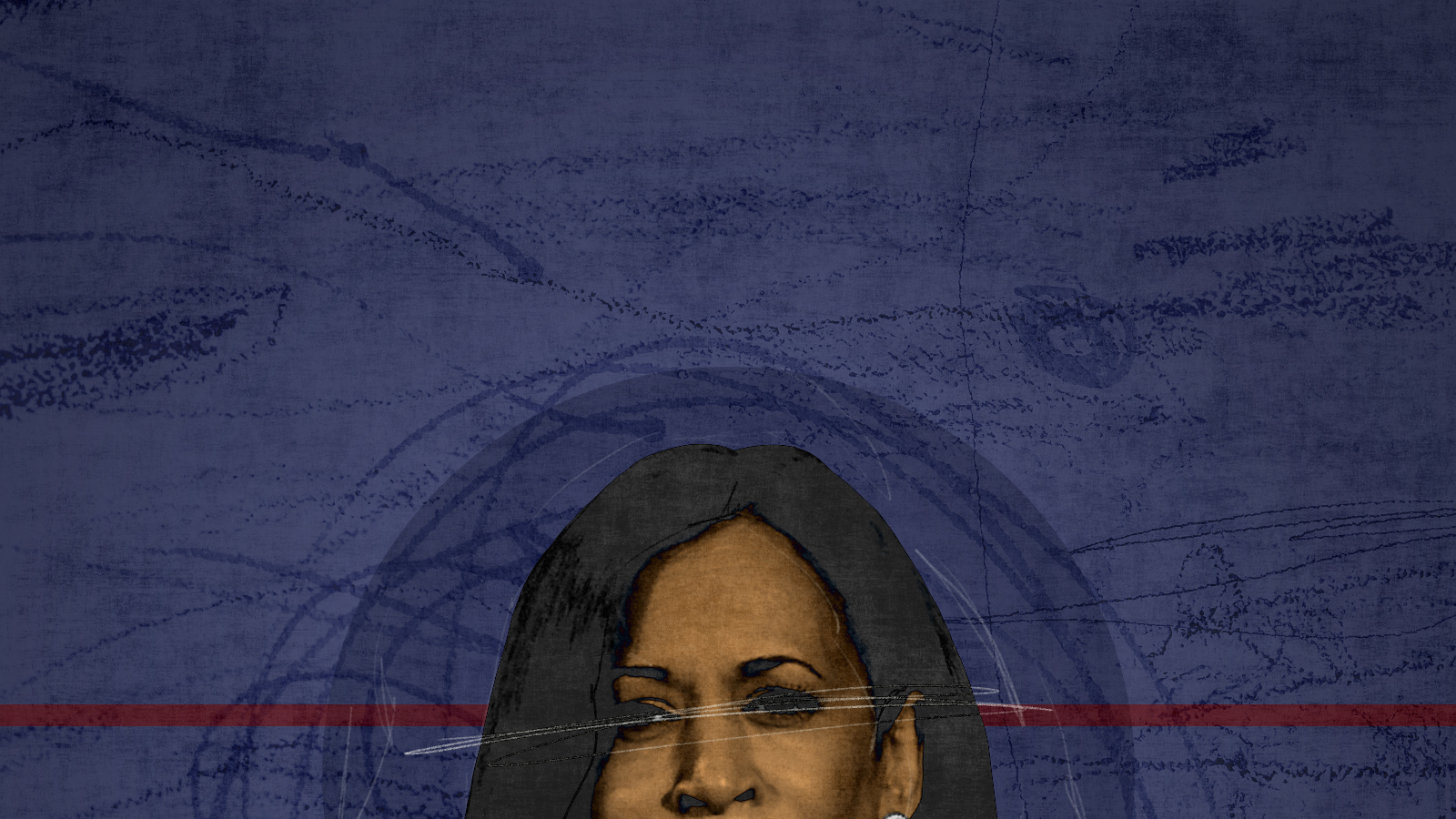The Democrats' Kamala Harris problem


A free daily email with the biggest news stories of the day – and the best features from TheWeek.com
You are now subscribed
Your newsletter sign-up was successful
In a provocative Substack post, Matthew Yglesias suggests that vice president Kamala Harris poses a serious problem for the Democratic Party. On the one hand, she's quite likely to be her party's next presidential nominee, in either 2024 or 2028 (depending on whether 78-year-old Joe Biden runs for re-election and/or lives long enough to complete one or both terms). On the other hand, her popularity lags behind Biden's, and the general sense in Washington is that she's politically inept.
How could this be, when she's won statewide office in California on more than one occasion? Because California is an overwhelmingly Democratic state — and Democratic Party politics in California incline in a direction that holds limited appeal, and is even downright unpopular, in other parts of the country. What direction is this? One, for example, that instinctively blames "sexism" alone for Harris' struggles in the polls, even though there's plenty of evidence that female politicians are quite capable of surmounting that obstacle to achieve political popularity in the United States.
Yglesias' advice to Harris is to stop acting like her job is to win the support of the young, highly educated urban activists and progressive donors who play an outsized role in California and national Democratic politics. They already love her. Instead, she should aim to win moderate swing voters by tailoring her public statements to appeal to an imagined 50-something white person without a college degree who lives in the suburbs of a mid-sized and decidedly unhip Midwestern city (like Grand Rapids, Michigan). In concrete terms, this would mean responding to a question about whether the United States is a racist country by expressing the kind of hokey patriotism that comes second nature to Biden. Just say, "America is the greatest country in the world," and leave it at that.
The Week
Escape your echo chamber. Get the facts behind the news, plus analysis from multiple perspectives.

Sign up for The Week's Free Newsletters
From our morning news briefing to a weekly Good News Newsletter, get the best of The Week delivered directly to your inbox.
From our morning news briefing to a weekly Good News Newsletter, get the best of The Week delivered directly to your inbox.
Could Harris do this? Of course she could. But will she? I have my doubts, if only because so many Democrats from her faction of the party would view such efforts as a moral betrayal. Such Democrats see themselves as a moral vanguard — and they don't want to practice a politics of compromise with atavistic racists, xenophobes, and the kinds of simpletons who swoon at lies about the exceptionalism of America. This doesn't mean they hate the country. But it does mean that they place its greatness in a not-yet-realized future and don't want to pretend there's much worth embracing about its past.
Does Kamala Harris view the country this way? Is she willing to break from it in order to win? Is she even able to see that she needs to? Those are the questions we can't yet answer but that are likely to determine her electoral viability going forward.
A free daily email with the biggest news stories of the day – and the best features from TheWeek.com
Damon Linker is a senior correspondent at TheWeek.com. He is also a former contributing editor at The New Republic and the author of The Theocons and The Religious Test.
-
 Local elections 2026: where are they and who is expected to win?
Local elections 2026: where are they and who is expected to win?The Explainer Labour is braced for heavy losses and U-turn on postponing some council elections hasn’t helped the party’s prospects
-
 6 of the world’s most accessible destinations
6 of the world’s most accessible destinationsThe Week Recommends Experience all of Berlin, Singapore and Sydney
-
 How the FCC’s ‘equal time’ rule works
How the FCC’s ‘equal time’ rule worksIn the Spotlight The law is at the heart of the Colbert-CBS conflict
-
 ‘The forces he united still shape the Democratic Party’
‘The forces he united still shape the Democratic Party’Instant Opinion Opinion, comment and editorials of the day
-
 How are Democrats turning DOJ lemons into partisan lemonade?
How are Democrats turning DOJ lemons into partisan lemonade?TODAY’S BIG QUESTION As the Trump administration continues to try — and fail — at indicting its political enemies, Democratic lawmakers have begun seizing the moment for themselves
-
 How are Democrats trying to reform ICE?
How are Democrats trying to reform ICE?Today’s Big Question Democratic leadership has put forth several demands for the agency
-
 Democrats push for ICE accountability
Democrats push for ICE accountabilityFeature U.S. citizens shot and violently detained by immigration agents testify at Capitol Hill hearing
-
 Big-time money squabbles: the conflict over California’s proposed billionaire tax
Big-time money squabbles: the conflict over California’s proposed billionaire taxTalking Points Californians worth more than $1.1 billion would pay a one-time 5% tax
-
 Democrats win House race, flip Texas Senate seat
Democrats win House race, flip Texas Senate seatSpeed Read Christian Menefee won the special election for an open House seat in the Houston area
-
 Did Alex Pretti’s killing open a GOP rift on guns?
Did Alex Pretti’s killing open a GOP rift on guns?Talking Points Second Amendment groups push back on the White House narrative
-
 Is Alex Pretti shooting a turning point for Trump?
Is Alex Pretti shooting a turning point for Trump?Today’s Big Question Death of nurse at the hands of Ice officers could be ‘crucial’ moment for America
